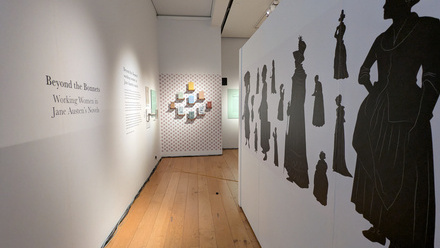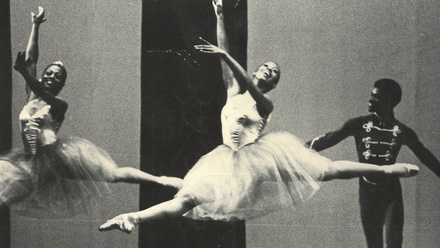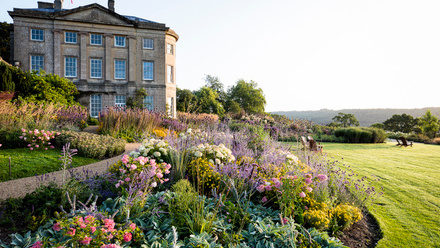'Rights not charity'
Drop in to the home of the Suffragette movement to delve beyond the usual headlines behind this chapter of women’s history. Discover the stories of women like Rosa May Billinghurst, unable to walk after contracting polio as a child, she was arrested multiple times for her suffragette activities. In her adapted tricycle she attended protests such as the infamous Black Friday demonstration of 1910. Imprisoned several times and force fed on at least one occasion she was awarded the WSPU’s Hunger Strike Medal ‘for valour’. (IMAGE: LSE Library - CC Wikimedia)
We know your name
It’s the early 1800s and the village church is getting a new tower, how exciting! But fancy renovations are expensive, where did the money come from? Recent research has revealed that the benefactor who paid for the work was the owner of three Jamaican plantations and used money from his ‘compensation’ following the abolition of slavery in 1833. Today the parish community are preparing to commemorate the enslaved people whose lives helped build this beautiful tower; their names will be remembered, their lives honoured.
The invisible sailors
A century ago Abdul Rahman was a sailor. If you’re interested in maritime history you may have heard the term ‘lascar’. It refers to one of the thousands of South Asian men, working hard on British ships, but paid as little as 1/8 of their European counterparts. In the late 19th and early 20th centuries many of them were treated at the Albert Dock’s Seaman’s Hospital and those that died were buried in unmarked graves in a nearby cemetery. Abdul was one of these men. Painstaking research is now giving them back their names and a special plaque will be unveiled to honour them this September. (IMAGE: Port of London Authority - CC Wikimedia)
Rainbow city
Liverpool. A major trade port with an iconic skyline, and musical touchstone as the home of the Beatles. But beyond these headlines, how much do you know about this beloved city? Check out this new audio trail and online map to discover its rainbow threads – the places and people connected to our LGBTQ+ history.
The roadbuilder
A road in Yorkshire is named the ‘John Metcalf Way’ after a local man better known as Jack. Born in 1717 a bout of smallpox left him blind from the age of six. As he grew up he learned to play the fiddle, becoming good enough to earn money playing at a pub in Harrogate. He also acted as a tour guide for local visitors before becoming involved in the development of roads during the Industrial Revolution. He was so good at planning out and building roads that some are still in use today, and he’s known as one of the fathers of professional roadbuilding. Find out more about this extraordinary man and visit his grave at All Saints Church. (IMAGE: Wellcome Collection / CC Wikimedia)
Native American connection
‘Just around the riverbend…’ The Disney musical made the name Pocahontas famous, but how much (little?) of that film was true? Princess Pocahontas was one of the first Native American immigrants to England and is buried at this church in Gravesend. Discover more of her story and others like her at this special event, which will end with a traditional remembrance ceremony in the churchyard.
WWII women in saris
During WWII Indian women were able to enlist in the army and navy for the first time. Many did so to earn their own money. Others, like Princess Catherine Duleep Singh and Princess Sophia Duleep Singh used their platforms to help those who were in danger. Access the archives at this family event to explore more South Asian stories beyond those taught in schools. (IMAGE: The National Army Museum)
Powerful poetry
This museum's opening more than its doors, they’re inviting you on an immersive walk introducing you to a poet with island connections. Born in 1869 Charlotte Mew published both poetry and prose that were praised by literary greats like Thomas Hardy and Virginia Woolf. These friends helped her achieve a civil service pension to ease the financial hardship she suffered. A tiny woman who wore size 2 button up black boots and dressed in a gender fluid style, we know she loved two women but struggled with her mental health and her life was marked by tragedy. Hear her words and discover her story with Stonecrabs Theatre. (IMAGE: Poetry Foundation / CC Wikimedia)
Find out more
-
Festival Spotlights - Be inspired for your event searches with our highlight posts.
-
What's on? - Search here for an event near you.



